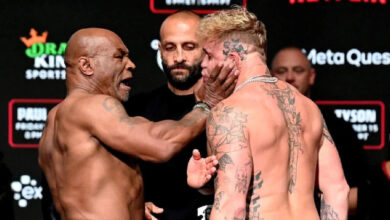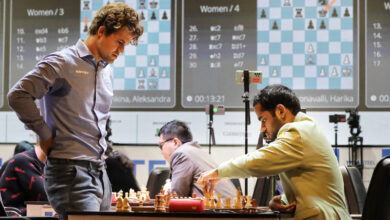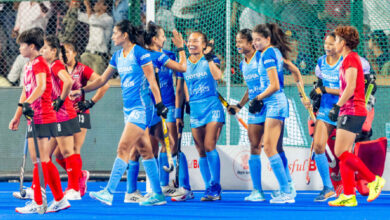Four years into Soviet-style chess academy, Anand’s students shine bright: ‘Always available for them’ | Chess News

Back in December 2020, when India’s first Grandmaster Viswanathan Anand started his chess academy, he had a modest dream: someone had “to carry the torch forward”. Three years later, the torch is shining bright, with a queue of contenders ready to take on the mantle.Three students from the online WestBridge Anand Chess Academy’s (WACA) first batch — D Gukesh, R Praggnanandhaa and his ser R Vaishali — have qualified for the upcoming Candidates tournament, a prestigious event to figure out the challenger to the reigning world champion.
Other promising prodigies at Anand’s academy are Nihal Sarin, Arjun Erigaisi, Raunak Sadhwani and Leon Luke Mendonca. While Arjun is no longer categorised as a junior player, Nihal, Raunak and Leon are — along with Praggnanandhaa and Gukesh — among the Top 10 ranked juniors in the world.
“The idea for the chess academy was to have a programme which Indian youngsters carry the torch forward. I am very happy that the first group we picked are all doing so well now. It’s pretty much what I expected, but I will admit to being slightly surprised how quickly they have done it. I think we have done extremely well there,” Anand tells The Indian Express.
Anand is not the only mentor at hand: he has assembled a quartet of Grandmasters to help out with the online classes.
Tata Steel chess India women category in Blitz 2023 Wenjun Ju Divya Deshmukh in Rapid Section with Viswanathan Anand in Kolkata on September 04, 2023. (Express photo. Partha Paul)
Poland’s Grzegorz Gajewski helps the youngsters with opening theories, GM Sandipan Chanda sharpens mid-game prep, Russian GM Artur Yusupov polishes endgames and Boris Gelfand hosts mentoring sessions. While Yusupov holds four classes a month, the others usually have about two classes each month.
At times, Anand requests Gelfand to hold an extra class — maybe even a dedicated session — right before players go in for an important tournament. In chess, getting a training session with top Grandmasters can be prohibitively expensive, which is where WACA fills in the gap.
Gelfand, while explaining his role at WACA with the prodigies, had told The Indian Express last year: “I show them some games and try to explain how I would take a decision in that situation. I explain my thinking process and analyse games of some of the players to see what was good and what went wrong at recent tournaments. This helps them understand how they can adjust their game.”
The genesis of WACA lay in a question Anand was asked his good friend Sandeep Singhal in 2019: what he would do for Indian chess whenever he gave up playing himself. Anand didn’t have an answer then.
But a few months later, he returned to Singhal with a concrete plan: a chess academy modelled on the lines of the legendary Botvinnik School of Chess and the Samford Fellowship. Thus, WACA came into being in December 2020 with Anand looking at the chess mentoring aspect and WestBridge Capital, of which Singhal is the co-founder, coming on board as the financial partner.
Anand has influenced many a prodigy’s decisions with what he calls ‘tailormade solutions’: from Gukesh hiring Polish GM Grzegorz Gajewski as his trainer to Vaishali working with GM Sandipan Chanda. (Express photo Partha Paul)
It was at the Botvinnik Chess School in the erstwhile Soviet Union in the 1960s — spearheaded world champion Mikhail Botvinnik — that Garry Kasparov and Vladimir Kramnik learnt the intricacies of the sport.
Anand has influenced many a prodigy’s decisions with what he calls ‘tailormade solutions’: from Gukesh hiring Polish GM Grzegorz Gajewski as his trainer to Vaishali working with GM Sandipan Chanda. Both Gajewski and Chanda have worked extensively with the five-time world champion during his playing days.
“I was the one who recommended Gajewski to Gukesh. Gajewski was my trainer for nine or so years. I recommended him at a stage of Gukesh’s career where I thought he will now need very serious work on his openings because he’ll be competing against players who are very good in their openings. My first input for Vaishali was that Sandipan (Chanda) was brilliant for me at some point in my career when I really needed him. He gave me some amazing ideas. So I told her, ‘Why don’t you have a couple of training sessions with him?’ If she chooses to work with Sandipan, I’ll arrange the schedule of the rest of the academy as well.”
Anand is keen to clarify that the counsel he provides to players are just suggestions or nudges. He also tries to get them to visualise tournament scenarios: he has had these conversations with all three Candidates contenders from WACA: Pragg, Vaishali and Gukesh. In fact, he had one of these conversations with Pragg just before he went to Wijk aan Zee in the Netherlands for the Tata Steel Masters.
“My thing is to counsel them. I am always available for them to bounce off ideas. I don’t dictate anything, but I am available for consultations,” says Anand.
So what’s the next step for WACA? “We will keep being a resource that Indian chess can benefit from. But we will also react to events: If something dramatic happens now (at the Candidates), then that will take a lot of our focus.”







